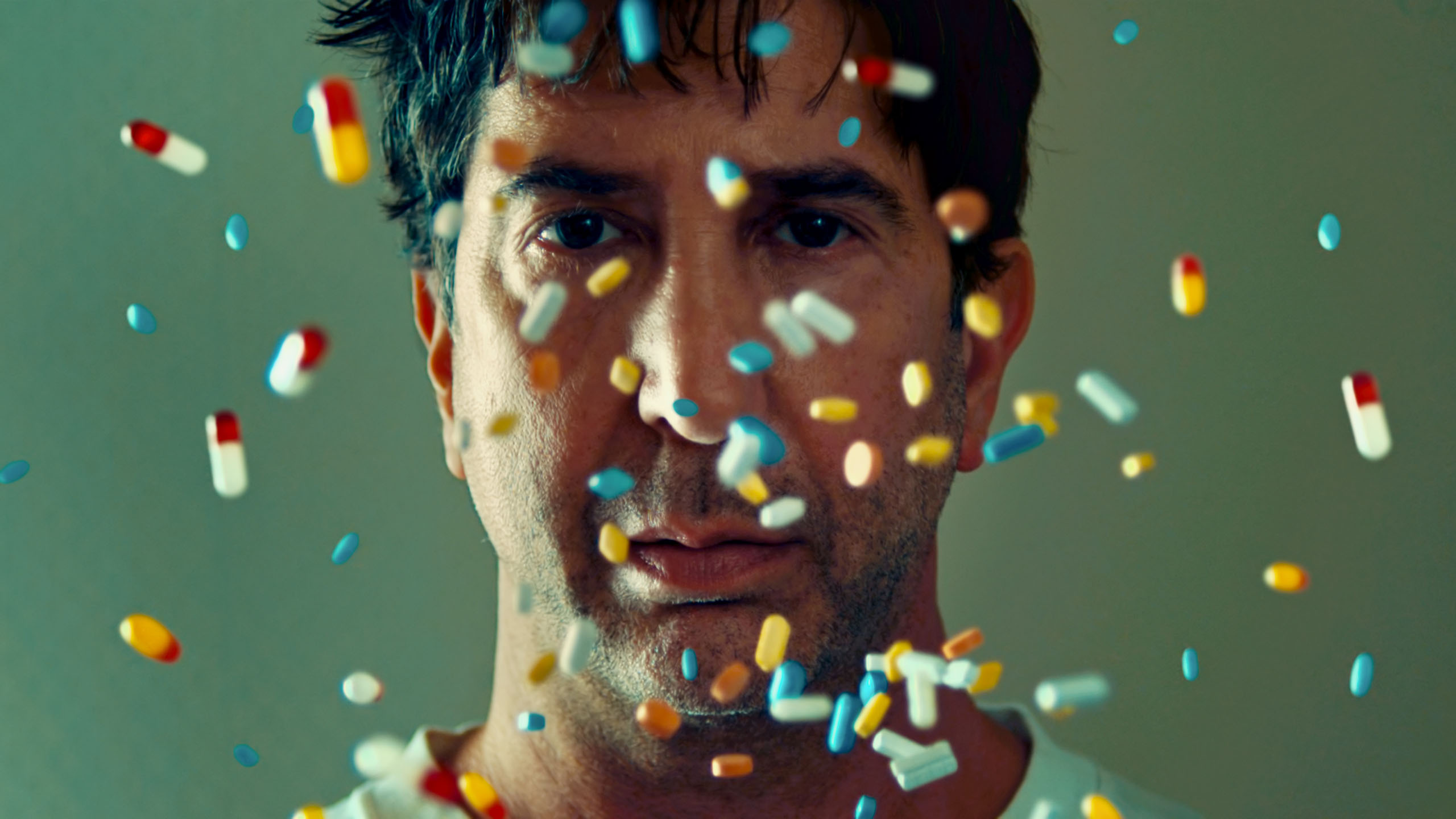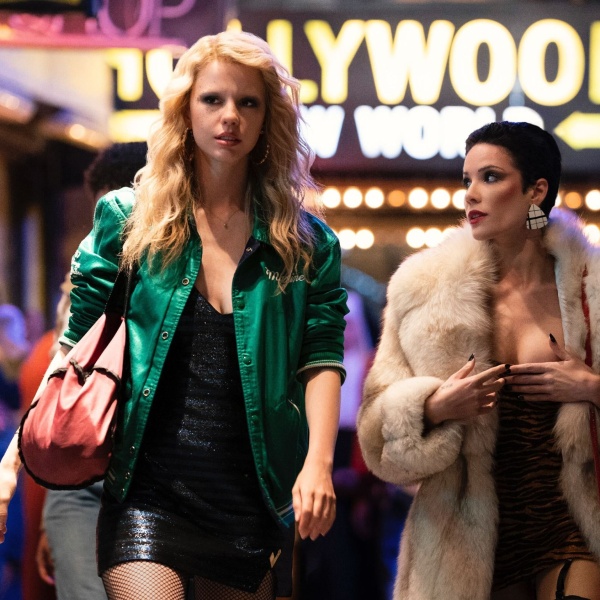There’s a perplexing choice at the heart of “Little Death,” directed by Jack Begert, best known for his work in music videos. That choice is essentially to make two very different movies and smash them together. If you squint closely, you can see the thematic throughlines between them, both stories about addiction told through different prisms, but while one is grating, the other is deftly told. You just have to make it through the first to get to the one that is more elegantly executed.
Begert is primarily a music video director with credits like Olivia Rodrigo’s recent “get him back!” and Jack Harlow’s Fergie-sampling “First Class” under his belt. The hyperactive visual style of that genre is on full display in the first half of “Little Death,” which is narrated by a depressed, misogynistic television writer named Martin played by David Schwimmer and, eventually, Gaby Hoffmann, but I’ll get to that in a second.
Martin hates the fact that he works on a corny NBC sitcom — a little in-joke with Schwimmer’s “Friends” past — and is working on a screenplay he hopes to direct about his childhood. He outwardly loathes his fiancée (Jena Malone) and has vivid fantasies about a mysterious woman (Angela Sarafyan) that turn into monologues illustrated with stock footage and animation.
When some executives suggest that Martin give his script a female protagonist and he starts to internally rail against wokeness, that’s when Hoffmann steps into the role. It’s a Charlie Kaufman-esque turn that feels not quite thought-through. Hoffmann is supposed to represent what it would look like if suddenly you were to flip the gender of a character without making any other edits to his persona. And, yes, even as a woman, Martin would still be insipid. Hoffmann is game to lean into the Schwimmer mannerisms, but it’s a fun trick that doesn’t end up saying all that much.
The satire in this part of “Little Death” is flimsy. It both seemingly wants to excoriate Martin and give him a mouthpiece, as if to say, “Why can’t this guy tell his own story? Isn’t all this Hollywood diversity talk silly?” (Seth Green shows up as one of Martin’s writer friends to rail against the establishment.) Schwimmer, with his hangdog face, is a great avatar for this kind of man who thinks he deserves more, but spending time in Martin’s company starts to become infuriating.
And yet! Before you get too comfortable or enraged with Martin, the plot shifts away from him. To explain exactly how this happens would be too much of a spoiler, but suddenly we’re in the company of AJ (Dominic Fike) and Karla (Talia Ryder), twenty-somethings who have their car and belongings stolen during a drug run that also put them in possession of a cute little Chihuahua. Begert gets rid of the chaotic tone and excessive cutaways to focus on their adventure throughout Los Angeles, which ultimately morphs into a story about drug use that is tender rather than overwrought.
AJ and Karla are both addicts, but Fike and Ryder never play them leaning into the typical tropes we often see. Yes, they do drugs, but their dependency runs under the surface of their personas. Ryder especially probes into Karla’s vulnerabilities, so when we realize the extent of her reliance on substances, it’s heartbreaking rather than obvious. Meanwhile, Fike, a musician best known for his turn on “Euphoria,” has been vocal about his own drug use and similarly gives an understated performance, capped by a surprisingly moving final shot.
This isn’t to say that the second half of the film lacks any zaniness. AJ, who wants to open a taco truck, and Karla go to a party with a pig race, for instance, and there’s a stop at a dealer’s house that is yet another all too familiar spin on the Alfred Molina detour in “Boogie Nights.” Here, it features Karl Glusman projecting incel energy as he tries to protect a snowglobe from AJ and Karla’s zonked-out friend (Sante Bentivoglio).
It’s evident why “Little Death” has earned the support of Darren Aronofsky, who produces with his Protozoa shingle. In many ways, it feels like an heir to Aronofsky’s “Requiem for a Dream,” in the way it zigzags between its pill-poppers. Only it doesn’t have Aronofsky’s trademark intensity.
You can see Begert’s intent in the disjointed arc of the film. Martin is a kind of quote-unquote respectable addict who is far more callous than AJ and Karla, and yet the whiplash of the structure is just too forceful. In splitting up the film like this every character feels shortchanged, and the relationships aren’t given any time to flourish.
Begert’s work is best when it’s at its most subtle, taking us on a trip through Los Angeles with two friends who rely on each other the same way they rely on drugs. As the camera offers a portrait of the city’s side streets and party houses and deli — shout out to Canter’s — it turns out AJ and Karla’s journey is ultimately one toward a potential recovery. Martin? Well, I’m not really sure why we even hung out with him at all.
Grade: C
“Little Death” premiered at the 2024 Sundance Film Festival. It is currently seeking U.S. distribution.







